Insights from 'The Almanack of Naval Ravikant' by Eric Jorgenson
A guide to wealth and happiness (with diagrams)

Last modified
The world is awash in business books. Some of these tackle one core idea, fattened with hundreds of anecdotes and supporting examples. Others synthesize a diverse range of concepts in fresh ways, helping you reframe them entirely. The Almanack is an example of the latter. We consider it a must-read for business owners, entrepreneurs and creative thinkers.
Who is Naval Ravikant?
Ravikant is an entrepreneur, advisor and investor, who gained fame in the tech world as a result of his early-stage investments in success stories like Twitter and Uber. The Almanack is collection of his wisdom transcribed from his podcasts, essays and interviews, and compiled by Eric Jorgenson.
The book is available as a free download on navalmanack.com. The printed version is available on Amazon.
The text covers insights on three core areas:
3. Learning the skill of happiness
1. Building wealth
As a child of Indian immigrants, Naval grew up in the United States with modest means. After starting various ventures in his 20s and 30s he gradually amassed a fortune, largely in his role as founder, investor and advisor to 200+ companies.
Naval recommends optimizing for wealth, rather than money or status. His definitions are summarised below:
| Wealth = Having assets that earn while you sleep. |
| Money = How we transfer time and wealth. |
| Status = Your place in the social hierarchy. |
Finding a position of leverage
If you work in the field of expertise, you are not going to amass wealth by renting out your time. Instead, wealth comes from the strategic application of leverage.
What is leverage? Leverage is essentially a force multiplier:
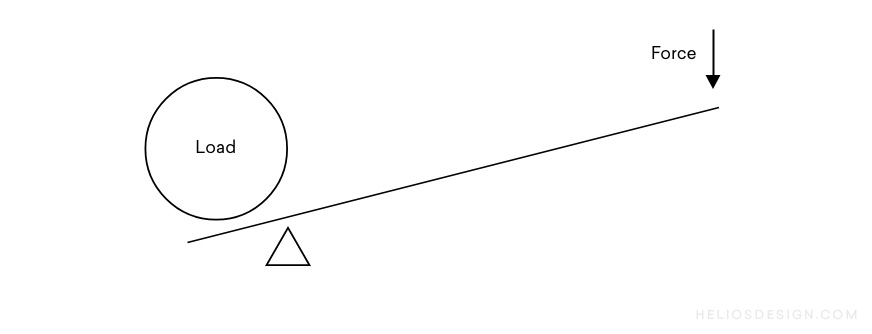
According to Ravikant, business leverage comes from three possible sources:
1. Labour (people working for you)
2. Capital (money to invest)
3. Products with no marginal cost of replication (in other words, technology such as
code or media)
Labour and capital are 'permissioned' leverage (they require people to work for you or money given to you), while code and media are 'permissionless' leverage:
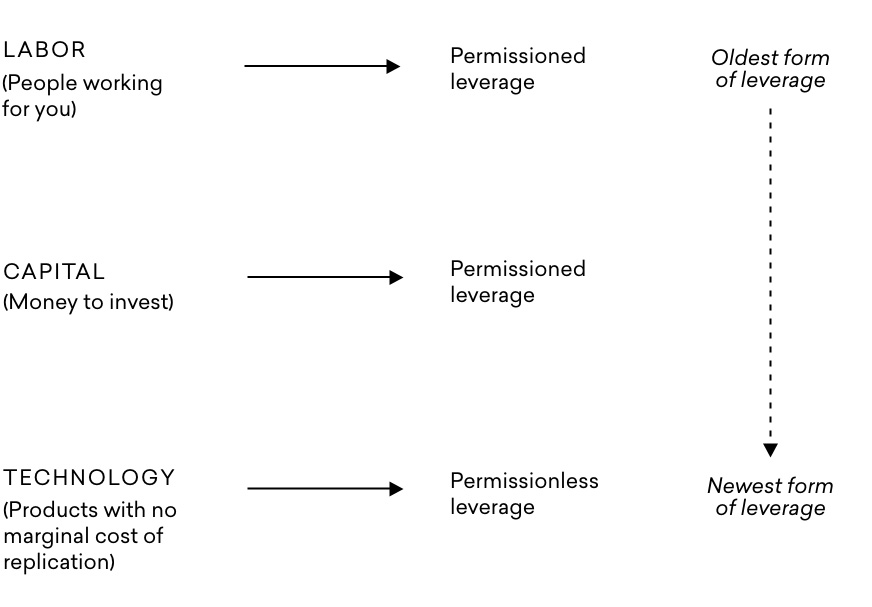
Code is probably the most powerful form of permissionless leverage. All you need is a computer – you don’t need anyone’s permission.” – Naval Ravikant
The third category of leverage (products with no marginal cost of replication) started with the printing press in the 15th century. It accelerated with broadcast media in the 20th century and has now reached new heights with the advent of the internet. In today's age, you can multiply your efforts without labour or capital – for example, by creating software and media (books, podcasts, videos) that generate income while you sleep.
Without leverage, your inputs are closely tied to your outputs (8 hours of work equals 8 hours of earnings). Your earning potential is linear. Think of professions such as hair dresser, makeup artist, electrician, tailor, tutor.

Leverage such as technology creates a disconnect between inputs and outputs. Returns are potentially exponential. Think of tech founders, content creators, influencers, inventors and app developers who leverage technology. Their creations can scale without requiring proportional inputs in time and effort.
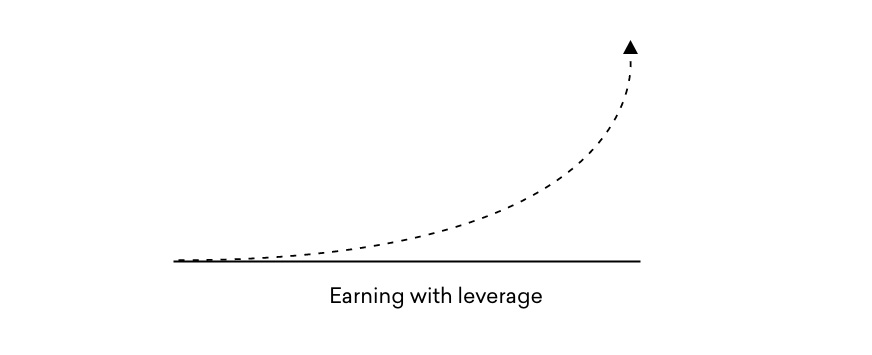
Earn with your mind, not your time.” – Naval Ravikant
Optimizing for the long term
Leverage, combined with the magic of compound interest, leads to long-term returns.
All the returns in life, whether in wealth, relationships or knowledge, come from compound interest." – Naval Ravikant
Investing in something for decades – whether it’s the honing of a skill, the nurturing of a relationship, or the building of a business – pays long-term dividends via the effects of compounding.
2. Gaining wisdom
The second section of the book focuses on honing your mental capacities and decision-making abilities, so that you can apply leverage in the right direction.
The direction you’re heading in matters more than how fast you move, especially with leverage.” – Naval Ravikant
Related definitions are captured below:
| Wisdom = Understanding the long-term consequences of your actions. |
| Judgement = Applying wisdom to external problems. |
Making spacing for thinking
To hone your mental faculties, it is important to make space for thinking.
It’s actually really important to have empty space. If you don’t have a day or two every week in your calendar where you’re not always in meetings, and you’re not always busy, then you’re not going to be able to think.” – Naval Ravikant
Our best ideas don’t come to us when we are stressed, distracted or in a rush. They arrive when our minds are relaxed and porous.
Tim Ferris covers similar ground in Tools of Titans by reinforcing the importance of scheduling large, uninterrupted blocks of time (which he calls “de-loading phases”), during which your mind can wander, ponder and find the “signal amidst the noise”.
If you work in the field of expertise, your work schedule should resemble successive sprints rather than long marathons. This means training and exerting like an athlete, then resting and reassessing:
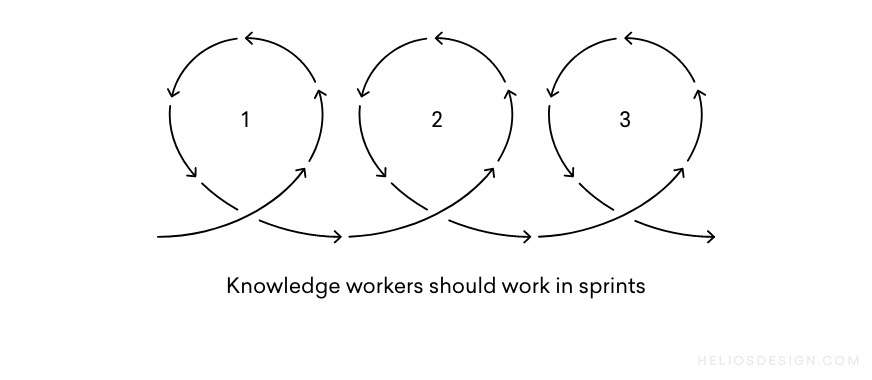
The forty-hour work week is a relic of the Industrial Age and leads to less-than-optimal performance for working professionals.
Becoming a perpetual learning machine
Naval recommends reading widely, collecting mental models and becoming a "perpetual learning machine". Today, it is much more important to be an efficient learner and to have the ability to become an expert in a brand-new field than to have studied the “right” thing years ago.
Ravikant personally reads for one to two hours a day, focusing on the fields of microeconomics, game theory, psychology, persuasion, philosophy, ethics, mathematics and technology.
3. Learning the skill of happiness
According to Naval, happiness is a highly personal skill that can be learned, like fitness or nutrition.
| Happiness = What remains when you remove the sense that something is missing in your life. |
| Peace = Happiness at rest. |
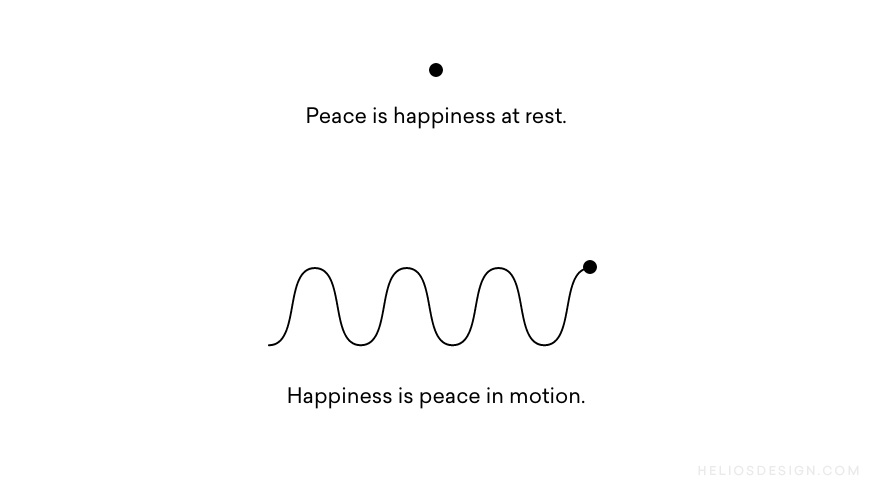
A happy person is not someone who is happy all the time. It is someone who "effortlessly interprets events in such a way that they don't lose their innate peace".
Being peaceful comes from having a mind clear of thoughts. Mental clarity, in turn, comes from being present:
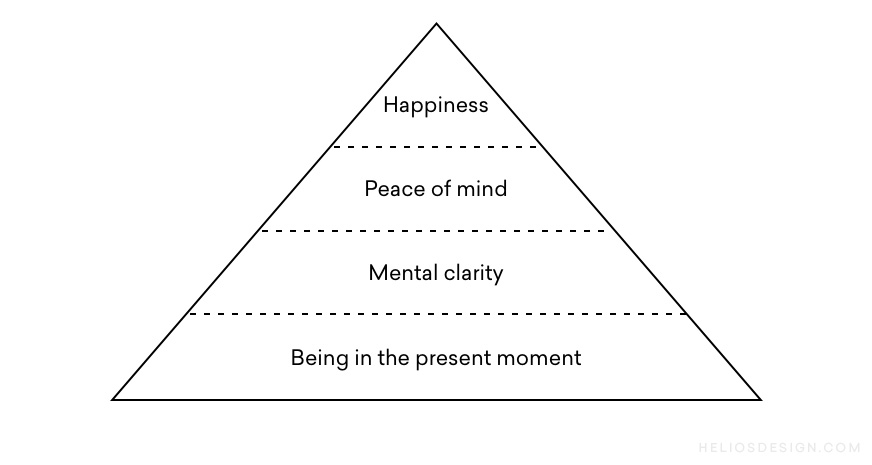
Clearing your mental inbox
Naval Ravikant recommends meditation as the equivalent of “intermittent fasting for the mind”. Time spent undistracted and alone – such as solo walking, journaling or self-examination – are all forms of meditation. These processes run your brain in “debug” mode and help clear your mental inbox of “unanswered emails”.
Conclusion
The three big ones in life are wealth, health, and happiness. We pursue them in that order, but their importance is reverse.” – Naval Ravikant
Wealth, health and happiness are interconnected. We typically prioritize some of these areas at the expense of others, and this tendency shifts as we age:
- When we are young, we have plenty of time and good health, but no money.
- When we reach middle age, we have money and health, but no time.
- And finally, when we reach retirement, we have time and money, but declining health.
The trifecta is to aim for all three at once:
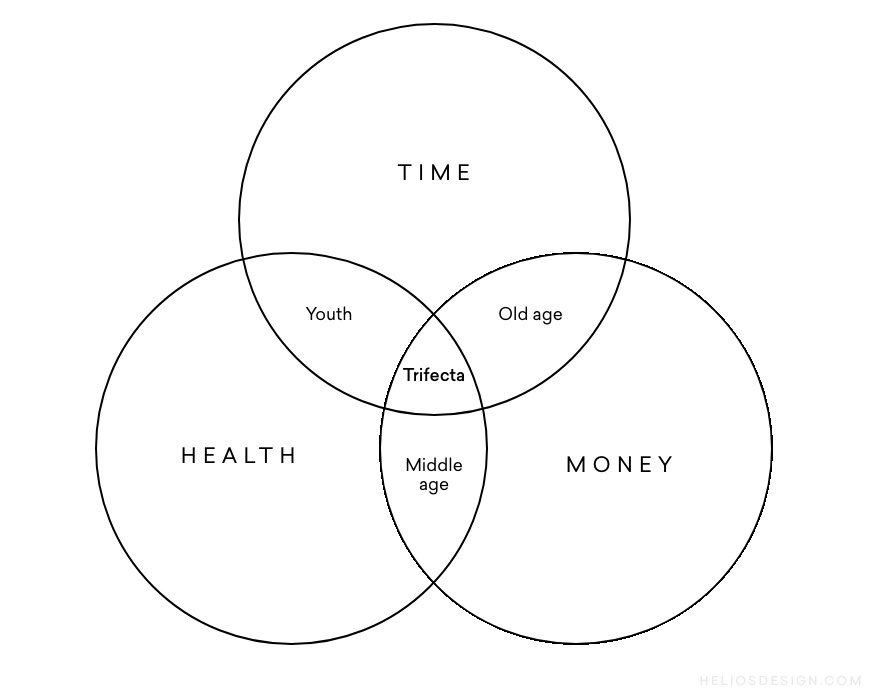
Your life is a firefly blink in a night. You’re here for such a brief period of time. If you fully acknowledge the futility of what you’re doing, then I think it can bring great happiness and peace because you realize this is a game.” – Naval Ravikant
Do check out the full 'Navalmanack' in printed, PDF or audio formats and let us know your thoughts in the comments!
What to read after The Almanack of Naval Ravikant:
- On wealth: The Rational Optimist: How Prosperity Evolves by Matt Ridley
- On decision making: Skin in the Game: Hidden Asymmetries in Daily Life by Nassim Taleb
- On thinking clearly: The Great Mental Models by Shane Parrish
- On inner mastery: Meditations by Marcus Aurelius

Did you know?
We have a team of rockstar developers who can help you productize your expertise through the application of technology as leverage.



